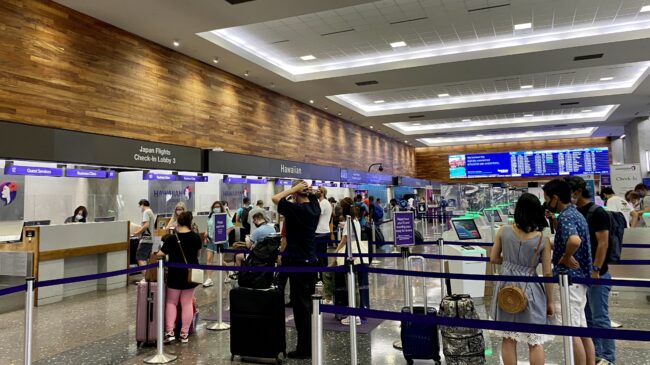Heavy-handed economic regulation of airlines characterized the first several decades of civil aviation in the United States. Basic business decisions on routes and fares were dictated by the federal Civil Aeronautics Board, which created and enforced a national cartel on interstate air transportation. Following the Airline Deregulation Act of 1978, market competition reshaped the domestic airline industry to serve many more travelers at far lower prices.
Congress should address the remaining policies that limit airline competition to the detriment of consumers.
Results of U.S. Airline Deregulation
- Inflation-adjusted base airfares in 2022 were 47% lower than they were in 1978, which is mostly attributable to competition and improvements enabled by airline deregulation.
- Unbundling of checked baggage and other ancillary services benefits consumers with greater choice. “All-in” airfares inclusive of previously bundled services are still down by 47% since 1990.
- Close to 100% of air travelers are now able to complete their full journeys on a single carrier to their preferred destinations, up from 75% before deregulation.
- The pre-deregulation legacy air carriers that controlled 100% of the interstate passenger air service market now account for just 50.1% of the interstate market.
- Average load factors (passenger-miles as a proportion of available seat-miles) have risen from approximately 60% to 85%. This enables lower airfares and reduces per-passenger CO2 emissions.
- By 2017, 88% of Americans had flown in their lifetimes and 48% had flown in the previous year, up from 63% and 25%, respectively, in 1977.
Three Reforms to Expand the Benefits of Airline Deregulation
- Congress should revise the definition of “unfairness” in the aviation consumer protection statute to mirror the one used by other federal consumer regulators, which would require a benefit-cost analysis to weigh a proposed regulation against “countervailing benefits to consumers or to competition.”
- Congress should eliminate the statutory cap on airport Passenger Facility Charges (PFCs) and replace slot controls with runway pricing. Both reforms would increase access to airports by new low-cost competitors and could save consumers billions of dollars per year on airfares.
- Congress should reexamine the longstanding prohibition on airline cabotage—the ability of foreign airlines to serve domestic routes. In the 1990s, the European Union liberalized cabotage rules among its member states. The result has been a dramatic increase in airline competition driven by ultra-low-cost carriers such as Ryanair and EasyJet, which in turn has led to comparable flights within Europe being much cheaper than those in the United States.
For more detail, read the full Reason Foundation policy brief, “Airline Deregulation: Past Experience and Future Reforms.”

